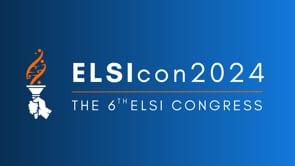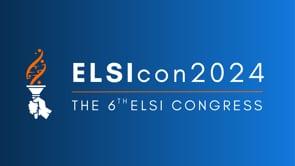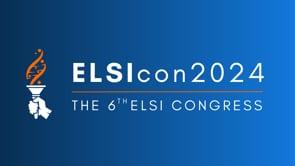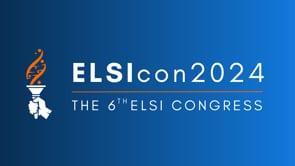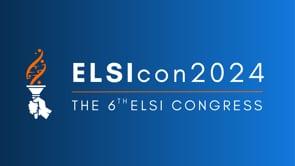ELSIcon2024: Artificial intelligence for precision medicine: How close to ‘personalized’ can we really get?
ELSIcon2024 • Panel • June 11, 2024
Authors:
Corresponding Author: Carole Federico, MSc, PhD (she/her/hers) – Stanford University
Panelist: Kristin Kostick-Quenet – Baylor College of Medicine
Panelist: Nicole Martinez-Martin, JD, PhD (she/her/hers) – Stanford University
Panelist: Abdoul Jalil Djiberou Mahamadou, PhD (he/him/his) – Stanford University
The use of artificial intelligence (AI) to facilitate prediction and decision-making has become widely popular across many disciplines. Fueled by advances in computing power, algorithms, and big data, the last decade has seen the widespread application of AI to diverse fields, including health care. The convergence of AI and precision medicine promises to revolutionize health care by enhancing disease prevention, and personalized diagnosis and treatment. For example, AI can be used to identify combinations of therapeutic targets and mechanisms in order to develop treatment strategies for complex diseases. Beyond clinical care, AI-enabled precision medicine offers the possibility of vast personalization of AI tool interfaces and user experiences. There is little doubt that AI presents tremendous opportunities to achieve the goals of precision health care. Questions remain, however, about what it will really take to personalize medicine, and whether computers can accurately and effectively account for the vast amount of heterogeneity present in patient data, social determinants of health, patient illness trajectories, and the diverse meaning and significance of symptom experiences. While sophisticated AI methodologies operating on large, diverse datasets can move us closer to this goal, new types of longitudinal, multimodal data will be required before medicine can be truly ‘personalized.’ Satisfying the need for more – and more personalized – data may be accomplished thanks in part to advances in genomic sequencing and digital phenotyping technologies, but doing so raises a number of ethical concerns, including questions about data availability and quality, safety and privacy, and bias and fairness.
At the bottom right corner of the video, you can click the “CC” button to display closed captions. You can also click the icon to the right of the “CC” button to display the transcript.
Tags
Videos in Series
-
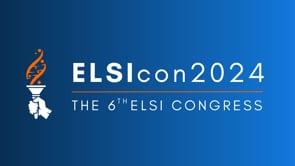
The 6th ELSI Congress - ELSIcon2024 - Genomics Research and Childhood Obesity through the Lenses of Equity: Reassessing Responsibilities and Costs between Families and Society
-
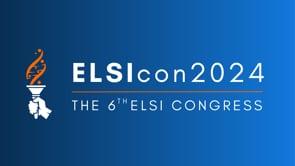
The 6th ELSI Congress - ELSIcon2024 - Cross-Disciplinary Research and Public Engagement on Eugenic Sterilization: Mixed Methods, Data Visualization, and Cross-State Comparisons
-
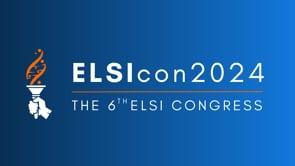
The 6th ELSI Congress - ELSIcon2024 - ELSIcon2024: Attitudes, Values, Preferences, Oh My! What Stated Preference Methods Can Bring to ELSI Research
-

The 6th ELSI Congress - ELSIcon2024 - ELSICon2024: Closing Plenary Panel
-
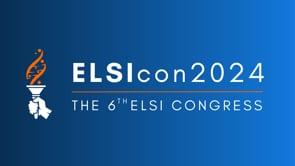
The 6th ELSI Congress - ELSIcon2024 - Increasing Diversity in Genetic Databases: Lessons Learned from 20 Years of Slow Progress
-
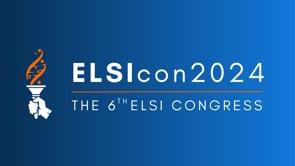
The 6th ELSI Congress - ELSIcon2024 - The ELSI of Engagement: Benefits and Challenges to Achieving a Just Genomics
-
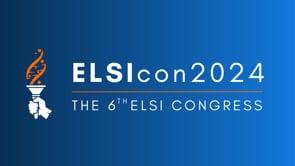
The 6th ELSI Congress - ELSIcon2024 - ELSIcon2024: Identifying and Dismantling Systemic Ableism in Prenatal Screening
-
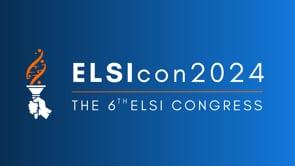
The 6th ELSI Congress - ELSIcon2024 - The Legal Weaponization of Racialized DNA
-
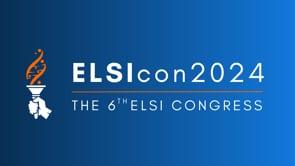
The 6th ELSI Congress - ELSIcon2024 - ELSIcon2024: Racial Politics and Health Equity in Genome-Editing Therapeutics
-
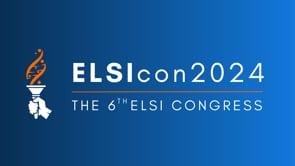
The 6th ELSI Congress - ELSIcon2024 - Patient perceptions of duties and responsibilities in variant reclassification and recontact process
-
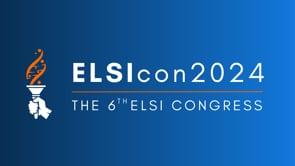
The 6th ELSI Congress - ELSIcon2024 - Re-envisioning Translational Equity in Pediatric Gene Therapy Research
-
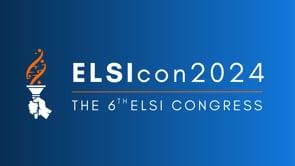
The 6th ELSI Congress - ELSIcon2024 - ELSI of implementing clinical genetic testing in kidney disease and transplantation care
-
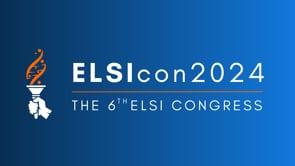
The 6th ELSI Congress - ELSIcon2024 - ELSIcon2024: Experiential ethics training for genomic researchers
-
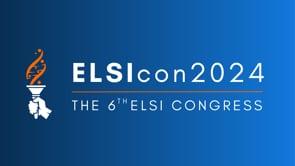
The 6th ELSI Congress - ELSIcon2024 - Psychiatric Polygenic Risk Scores in Reproductive Decision-Making: Perspectives from Adults with Psychiatric Conditions
-
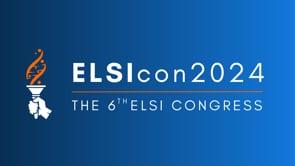
The 6th ELSI Congress - ELSIcon2024 - Reporting practices for sexual and gender minority demographic information in NIH-supported genomic studies
-
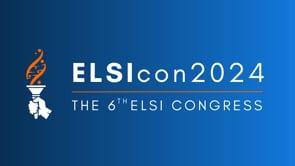
The 6th ELSI Congress - ELSIcon2024 - The Failed Protection of Proposed Changes to HIPAA
-

The 6th ELSI Congress - ELSIcon2024 - Experiential ethics training for genomic researchers
-
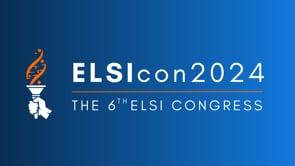
The 6th ELSI Congress - ELSIcon2024 - Assessing the impacts of the major human genome editing (HGE) reports on the governance landscape
-
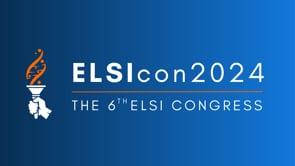
The 6th ELSI Congress - ELSIcon2024 - Contemporary bioethics and policy changes for children with profound disabilities: Cardiac Surgery in Children with Trisomy 18
-

The 6th ELSI Congress - ELSIcon2024 - Racial Politics and Health Equity in Genome-Editing Therapeutics
-
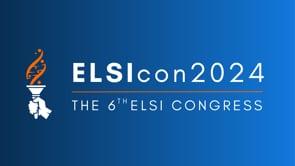
The 6th ELSI Congress - ELSIcon2024 - Key stakeholders’ moral attitudes on somatic gene editing for inherited cardiomyopathy: a qualitative interview study
-
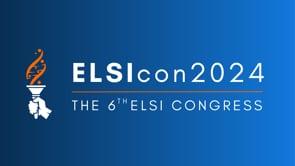
The 6th ELSI Congress - ELSIcon2024 - Weighing the Benefits, Harms, and Limitations of Genetic Testing in the Workplace
-
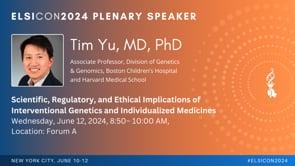
The 6th ELSI Congress - ELSIcon2024 - ELSIcon2024 Plenary: Scientific, Regulatory, and Ethical Implications of Interventional Genetics and Individualized Medicines
-
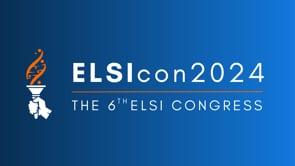
The 6th ELSI Congress - ELSIcon2024 - From Person-Centered to Family-Centered: Navigating Practical and Ethical Issues in Health System-Led Contact for Cascade Screening
-
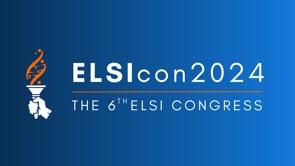
The 6th ELSI Congress - ELSIcon2024 - Assumptions of value: Exploring normative aspects of newborn genomic sequencing in decision analytic models
-
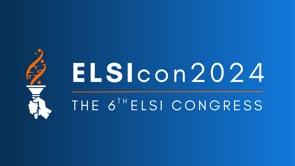
The 6th ELSI Congress - ELSIcon2024 - ELSIcon2024: Anticipating social and interpersonal influence of polygenic scores in future clinical settings
-

The 6th ELSI Congress - ELSIcon2024 - ELSIcon2024: Global Perspectives on Implementing Clinical Genomic Sequencing Equitably, Effectively and Efficiently
-
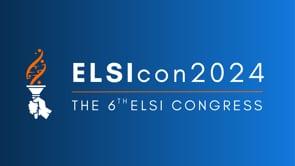
The 6th ELSI Congress - ELSIcon2024 - ELSIcon2024: Digital solutions to deliver genomic medicine: Taking a closer look at what’s under the hood
-
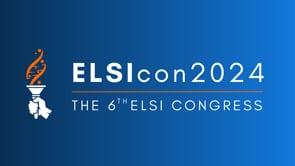
The 6th ELSI Congress - ELSIcon2024 - ELSIcon2024: Prenatal genetic information as preparation: Parents and clinicians reimagining benefits for families and future children
-
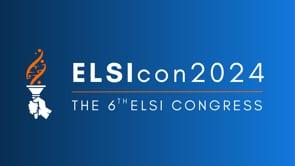
The 6th ELSI Congress - ELSIcon2024 - ELSIcon2024: Impact of Returning Genomic Results Related to Adult-Onset Conditions to Pediatric Patients
-
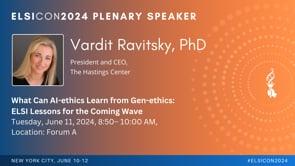
The 6th ELSI Congress - ELSIcon2024 - ELSIcon2024 Plenary: What Can AI-ethics Learn from Gen-ethics: ELSI Lessons for the Coming Wave
-
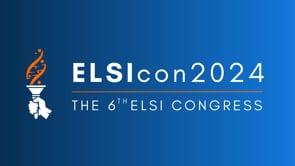
The 6th ELSI Congress - ELSIcon2024 - ELSIcon2024: The Ethics of “Traceback Testing”: Perspectives of First-Degree Relatives of Deceased Individuals on Privacy, Consent and Benefit.
-
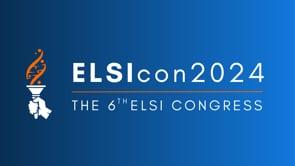
The 6th ELSI Congress - ELSIcon2024 - ELSIcon2024: Clinician Perspectives on Polygenic Risk Scores in Child and Adolescent Psychiatry: Current Concerns and Future Utility
-
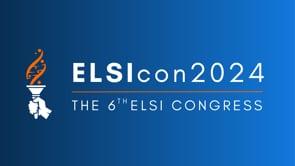
The 6th ELSI Congress - ELSIcon2024 - ELSIcon2024: Legal Protections Against Genetic Discrimination: Awareness Among Adults and Adolescents with Psychiatric Conditions and Caregivers
-
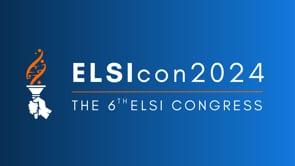
The 6th ELSI Congress - ELSIcon2024 - ELSIcon2024: Nothing About Us Without Us: Sharing Relevant Results with Communities that Provide Genomic Data
-
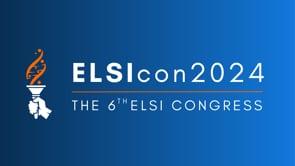
The 6th ELSI Congress - ELSIcon2024 - ELSIcon2024: Exploring Ethical Dialogues in genomics research: A Qualitative Analysis of the Drama of DNA Method in South Africa.
-
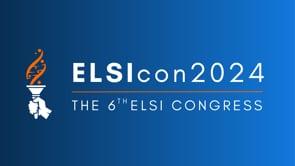
The 6th ELSI Congress - ELSIcon2024 - ELSIcon2024: Rethinking the Rule Against Testing Children for Adult-Onset Conditions: A New Zealand Case Study
-
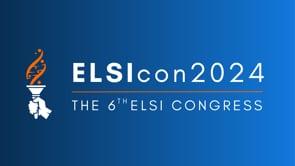
The 6th ELSI Congress - ELSIcon2024 - ELSIcon2024: Genomics Through the Eyes of Others
-
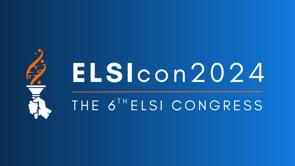
The 6th ELSI Congress - ELSIcon2024 - ELSIcon2024: Minoritized Community Recommendations for Ethical Conduct of Social Epigenomic Research
-
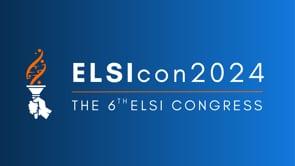
The 6th ELSI Congress - ELSIcon2024 - ELSIcon2024: Beneficial engagement with Indigenous Peoples: A survey of Tribal research governance in the United States
-

The 6th ELSI Congress - ELSIcon2024 - ELSIcon2024: Differences between private, government, and consortium data stewards and their impact on genetic research with diverse ancestra
-
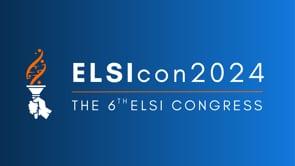
The 6th ELSI Congress - ELSIcon2024 - ELSIcon2024: Proper Parents: Poverty, Disability, Race, and Reproductive Control after the Eugenics Era
-

The 6th ELSI Congress - ELSIcon2024 - ELSIcon2024 Plenary: Indigenous Data Sovereignty: Finding Pathways for Equitable Benefit Sharing from Genomic Science
-
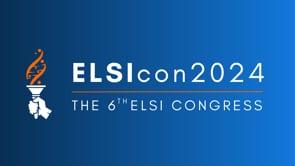
The 6th ELSI Congress - ELSIcon2024 - ELSIcon2024: Whose Science? Whose Knowledge? Equitable Partnerships and Diverse Teams for Just Genomic Research
-
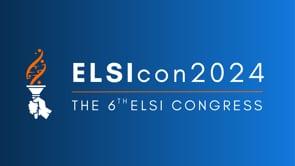
The 6th ELSI Congress - ELSIcon2024 - ELSIcon2024: Incorporating Equity Considerations in Health Technology Assessment and Funding of Genome Medicine Technologies in Ontario, Canada
-
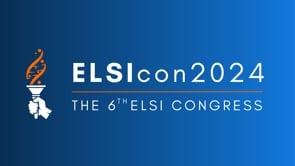
The 6th ELSI Congress - ELSIcon2024 - ELSIcon2024: Analyzing Gamete Donation Screening Guidelines and Their Impact on Disability
-
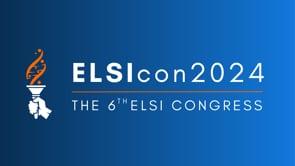
The 6th ELSI Congress - ELSIcon2024 - ELSIcon2024: From liminality to liberation: FACTS as a case study for addressing VUSs and prioritizing equity in genomic medicine

